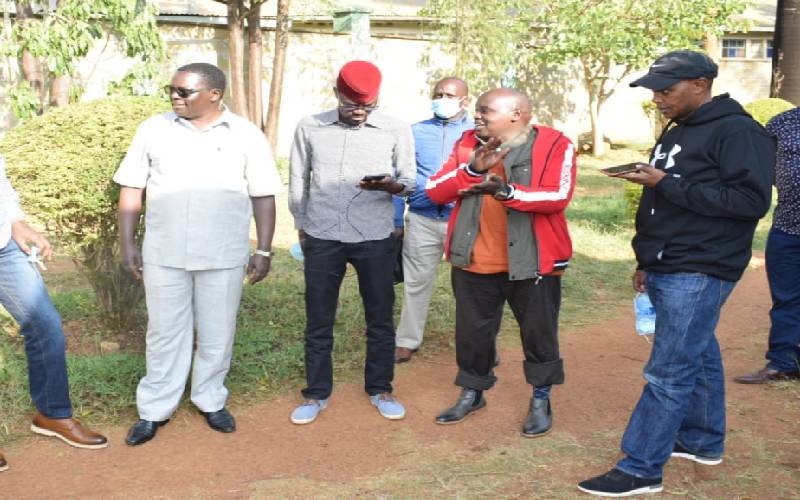×
The Standard e-Paper
Join Thousands Daily

The four legislators at the Bungoma Law courts before being charged. [Courtesy]
Four Tangatanga-allied legislators were on Friday charged in a Bungoma court with possessing weapons and refusing to have their fingerprints taken after their arrest on Thursday.